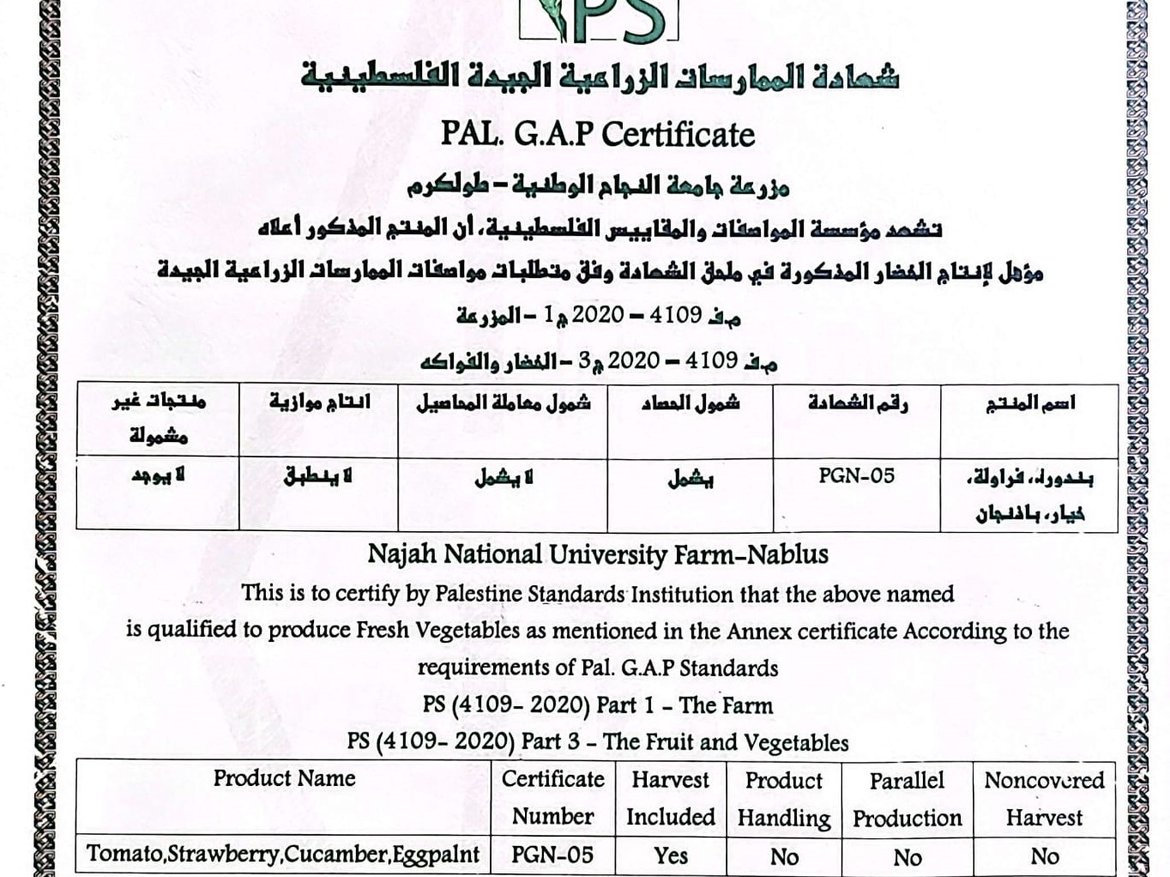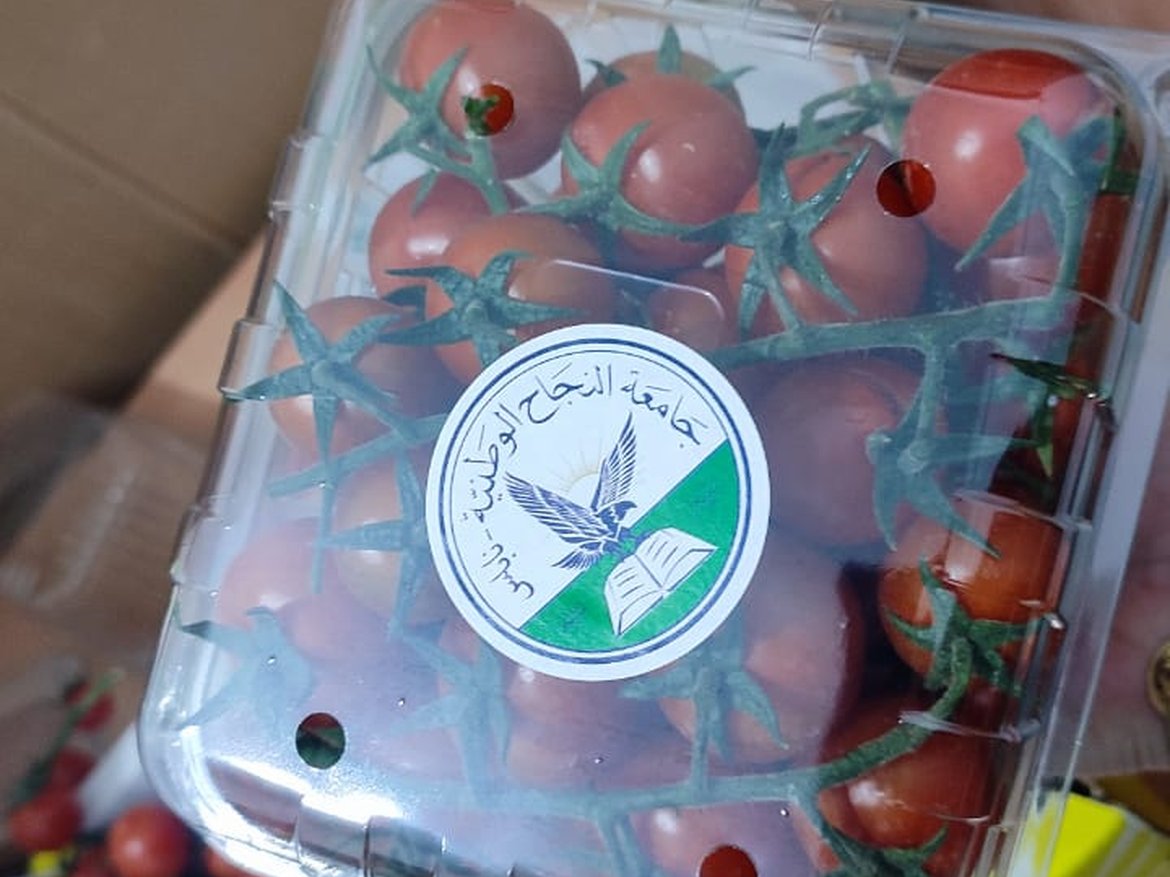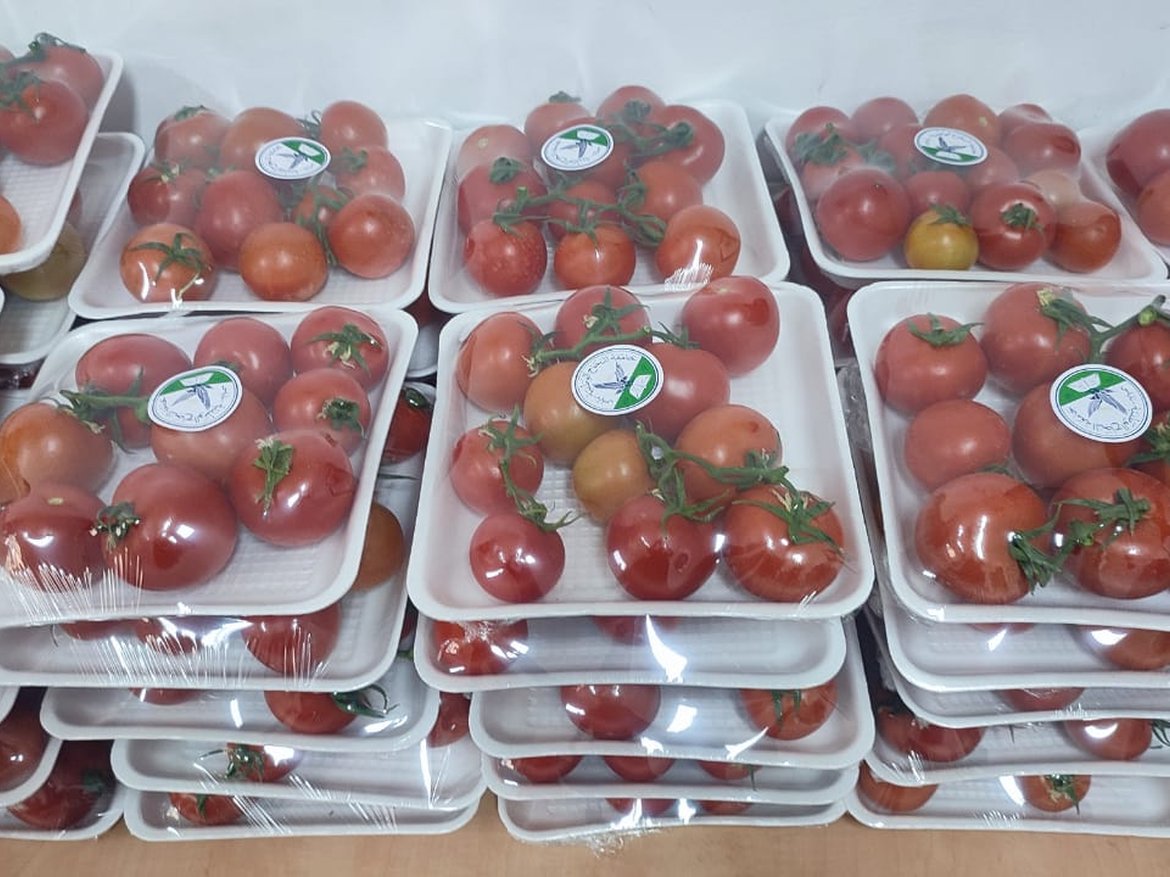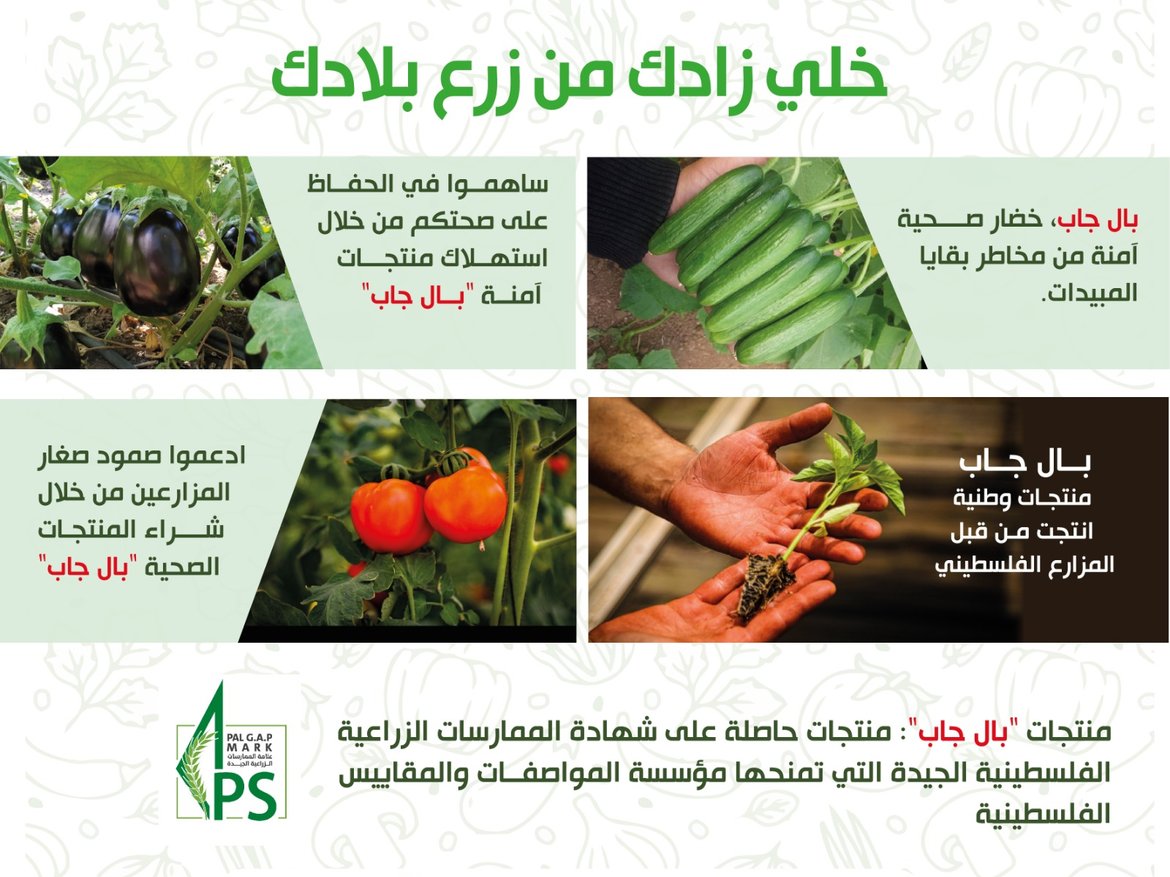The PARC project aims to enhance the safety and quality of widely consumed fresh vegetables in Palestine by promoting the adoption of Palestinian Good Agricultural Practices (PAL.G.A. P) among small-scale farmers. PAL.G.A. P is tailored to the Palestinian context, based on international best practices, and focuses on improving food safety, reducing environmental degradation, and boosting public health. The project targets 400 farmers (including 120 women), six farmer cooperative associations (three women-led), and 20 agricultural graduates employed by the project.
Project Duration: 2022–2025
The project contributes to multiple SDGs, including:
- Goal 1: No Poverty – By increasing farmers' income.
- Goal 2: Zero Hunger – By improving agricultural productivity and ensuring sustainable food production.
- Goal 3: Good Health and Well-being – By ensuring access to safe and nutritious food.
- Goal 4: Quality Education – Through training programs on PAL.G.A.P.
- Goal 5: Gender Equality – By promoting the participation of women farmers.
- Goal 6: Clean Water and Sanitation – By reducing environmental impacts.
- Goal 8: Decent Work and Economic Growth – By enhancing farmers' capacities and market access.
- Goal 10: Reduced Inequalities – By supporting farmers in marginalized rural areas.
- Goal 12: Responsible Consumption and Production – By ensuring the production of high-quality, safe food.
- Goal 13: Climate Action – By promoting environmentally friendly farming practices.
- Goal 15: Life on Land – By supporting sustainable agriculture.
The project is aimed to achieve the following general objectives:
- Strengthening PAL.G.A. P Standards: Enhance the adoption of PAL.G.A. P standards for agri-food and develop new standards for dairy products, ensuring food safety and quality.
- Capacity Building: Train 400 small-scale farmers, community-based organizations (CBOs), farmer packing houses, and university labs in the West Bank to produce and market safe, environmentally friendly products.
- Market Development: Support producers in developing marketing channels, conducting market assessments, facilitating linkages with traders and retailers, and raising consumer awareness about PAL.G.A. P-certified products.
The project aims to achieve significant long-term impacts:
- Enhanced Food Safety and Quality: Improved safety and quality of agri-food and dairy products through PAL.G.A. P implementation.
- Increased Farmer Income and Economic Empowerment: Higher incomes for farmers due to improved practices and better market access.
- Stronger Community Resilience: Empowered farmers, particularly women and youth, strengthening the socio-economic fabric of agricultural communities.
- Sustainable Agricultural Practices: Adoption of environmentally friendly farming practices contributing to long-term sustainability.
The project activities include:
- Training 400 farmers on PAL.G.A. P standards and best practices.
- Conducting technical reviews and developing PAL.G.A. P standards for agri-food and dairy products.
- Providing agricultural inputs and support to CBOs, farmers, and university labs.
- Organizing regular visits and coaching for farmers on the PAL.G.A. P certification process.
- Conducting market assessments and designing marketing activities.
- Establishing market channels for PAL.G.A. P-certified products.
The project is funded by the French Development Agency (AFD) and Islamic Relief France (SIF), and implemented in collaboration with key local partners, including:
- An-Najah National University (ANNU) represented by the Faculty of Agriculture and Veterinary Medicine & Energy, Water and Food Security Research Center.
- Islamic Relief France (SIF)
- The Palestinian Economic and Social Development Center (ESDC)
- The Ministry of Agriculture (MoA)
- The Palestinian Standards Institute (PSI)










